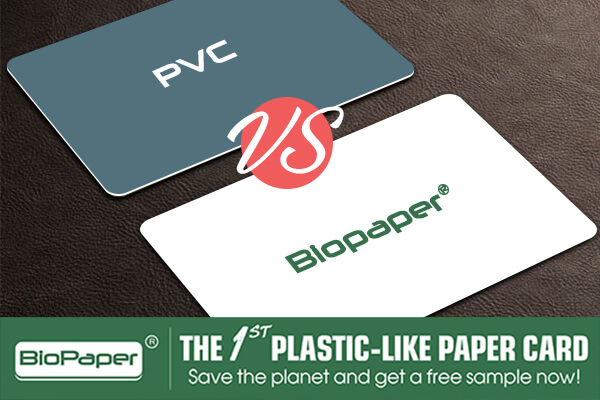The hotel’s key card access ensures the safety of the property and employees as intruders or unescorted guests are kept at bay within specified hotel areas. The material used to manufacture the hotel key card should be waterproof, tear-resistant, and can withstand wear and tear. With the go green initiative, hotels are now embracing eco-friendly products. BioPaper cards are gaining popularity nowadays due to their eco-friendly nature. BioPaper is a woodless but waterproof paper that is proving to be the best material for hotel key cards. It has outweighed the shortcomings of the PVC cards. Some of the differences between BioPaper cards and PVC cards include:
BioPaper card is safe for human use
In all areas, mostly the hospitality industry, customers’ safety is paramount. BioPaper cards are manufactured from naturally occurring sources, therefore, they are chemical and toxic-free. Also, no additive is added, the raw material is white itself. In contrast, PVC cards contain dangerous chemical additives including cadmium, lead, phthalates, and/or organotins that can be very harmful to human health. The digestion or inhalation of these chemical additives results in immune system damage and hormonal disruption.
BioPaper card is environmentally friendly
In the quest of not harming the environment but conserving it daily, the hospitality industry has not been left out. Hotels have now embraced eco-friendly and green seal certified biobased products. BioPaper cards are made from naturally occurring sources, this makes BioPaper cards environmentally friendly as the raw materials used in production are 100% naturally derived. On the other hand, the PVC (polyvinyl chloride) cards are the most environmentally damaging plastics. From its production, usage, and disposal the PVC lifecycle results in the release of toxic, chlorine-based chemicals which can lead to severe health problems.
BioPaper card is non-toxic
To promote eco-friendliness, the environmental repercussion of throwing away a product should be as important as its manufacture. Since the main raw materials for manufacturing BioPaper cards are naturally derived, to dispose of them, one can either throw them away and they will degrade within a certain period or burn them and they won’t create any toxic gases. Contrarily, when PVC cards are burnt, they produce carbon monoxide, chlorinated furans, and dioxins. The latter not only harms the environment but also causes birth defects and diseases such as cancer. PVC also emits hydrogen chloride (HCI) fumes when burned that can pose a health hazard.
BioPaper card is durable
PVC cards have been used for a long time in the hotel industry because PVC is a readily available inexpensive plastic material that can be printed on. However, the PVC cards can’t stand up well when in a low temperature as they weaken and can easily crack or break. When the cards are exposed to a temperature of 20℉, they freeze and become hard, as a result, it will be dangerous if you are using a PVC card in a ski resort. The BioPaper cards are highly flexible and can withstand an extremely high or low temperature. These cards are bio-based making them waterproof and they also have a perfect printing effect. BioPaper cards also have tear-resistant properties.
Click here to learn more about BioPaper card. If you have any questions regarding this new product, welcome to contact us any time.
